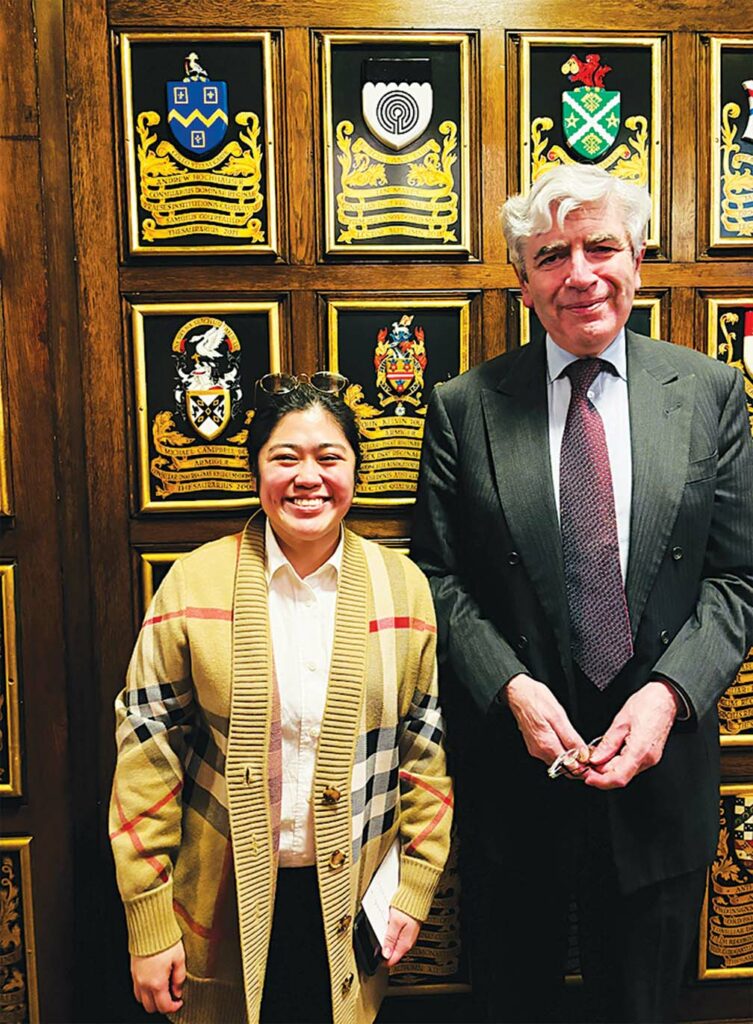She started young. Born Feb. 7, 1991 to a seaman father with Spanish lineage and a businesswoman mother from a Chinese family, Anna Mae Lamentillo, on her own recollection, remembers growing up in a “multi-cultural household, where the spirit of empowerment and equality thrived.”
“I was raised in an environment where women were encouraged to pursue their dreams and assert their identities. My mother, a beacon of strength and resilience, would always remind us that we were no damsels in distress; we were capable of standing tall with our feet firmly planted on the ground,” recalled Anna Mae.
She traces her roots back to the beautiful towns of Molo, Duenas, and Calinog in Jaro, Iloilo. It is sugar country—land of sugar barons, hacienderos, and thousands of impoverished sacadas.
It is also the province of the Karay-a, an ethnolinguistic group that Anna Mae identifies with, predominantly located on Panay Island in Western Visayas.
“Growing up in a diverse environment as a member of the indigenous group of Karay-a, I witnessed firsthand the struggles faced by marginalized groups in society, such as persons with disabilities, indigenous peoples, the elderly, women, and children,” she said.
Anna Mae further recalled that “from a young age, my parents taught me the value of treating everyone with respect, irrespective of their gender, social status, or ethnicity. This foundational principle instilled in me a deep sense of empathy and a belief in the inherent worth of every individual.”
MASTERFUL WOMEN
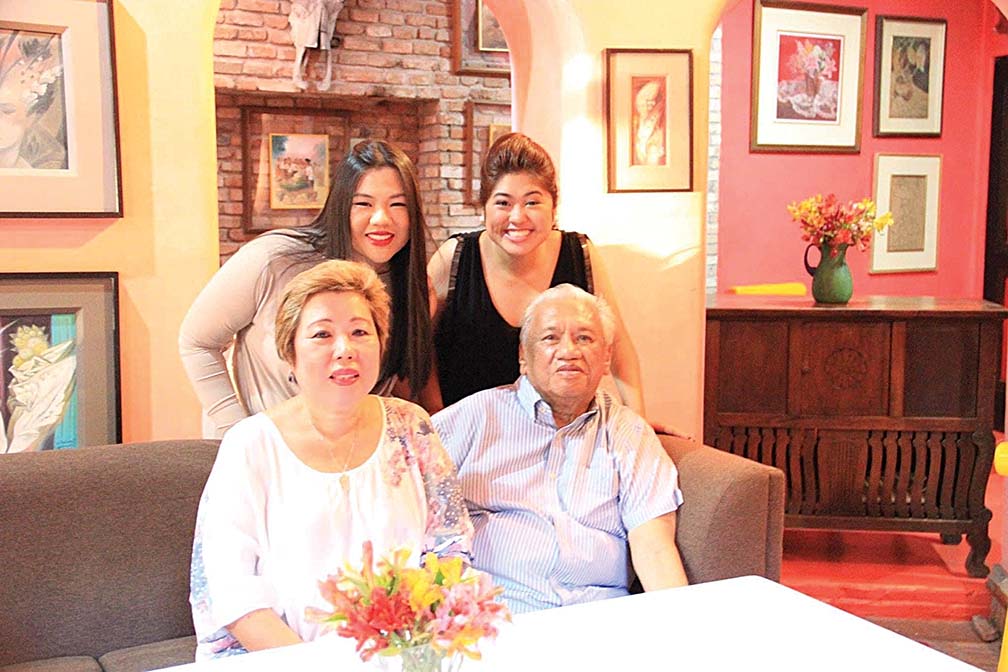
Anna Mae describes her mom, Elnora Yu-Lamentillo, as a strong and independent woman. “She was a rebel in every sense of the word, unafraid to challenge societal norms and expectations. Her spirit of defiance and determination shaped not only her life but also the way she raised us, her children.”
She learned that her mother’s family did not approve of her father. Manuel Lamentillo so much older than Elnora and he did not come from a Filipino-Chinese family.
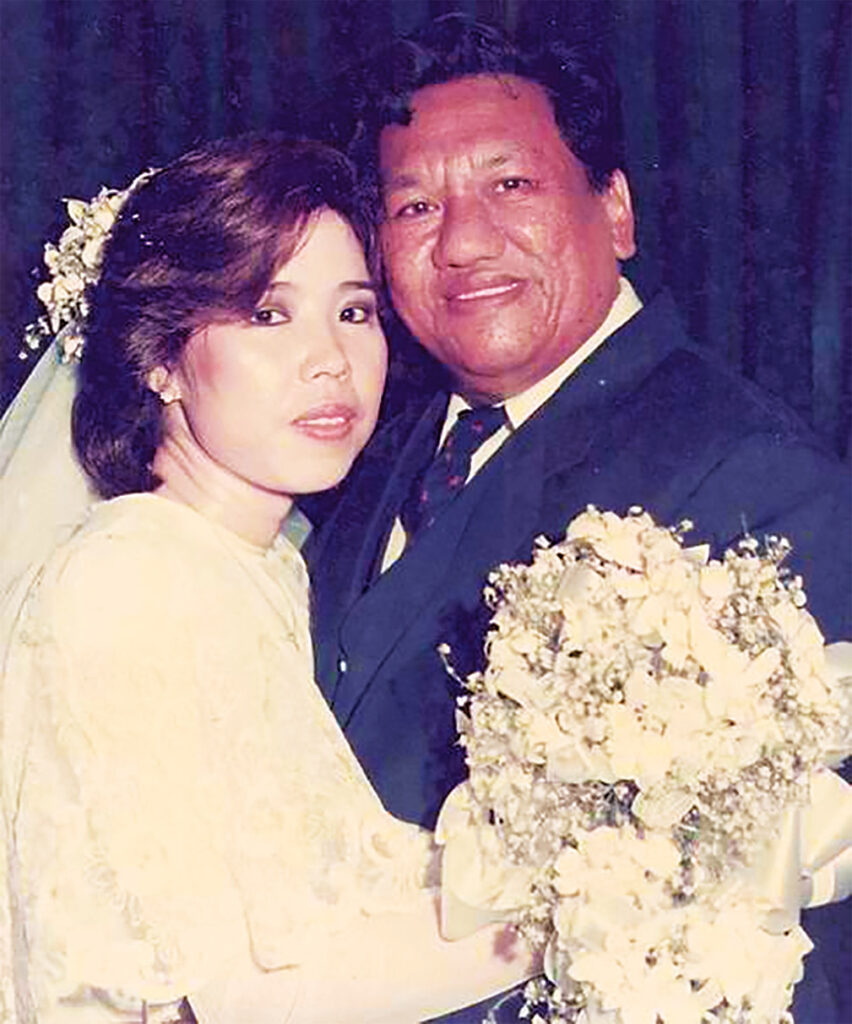
Still, despite the criticisms and admonitions Elnora faced, she stool by Manuel, choosing love over conformity and tradition.
Anna Mae remembered what she described as powerful lessons that her mom shared with them almost every day, saying those lessons stayed with her forever. “Over dinner she had lovingly prepared for us, my mom would often remind us that we could be anyone we wanted to be, that we did not have to fit into a mold or live according to someone else’s expectations. We did not need to be a Cinderella, waiting to be saved by a prince. Instead, she encouraged us to be the main protagonists of our own stories, to seize control of our destinies and carve out our own paths in life.”
Through words and actions, Elnora instilled in her children a sense of empowerment and self-reliance. “She taught us to be resilient, to stand tall in the face of adversity, and to never shy away from being true to ourselves. Her unwavering belief in our potential and her relentless support fueled our ambitions and inspired us to dream big.”
Today, as she looks back on her childhood, Anna Mae points to her mother as the woman who shaped her into the person she has become. “Her courage, resilience, rebellious spirit, and unwavering belief in the power of individuality have left an indelible mark, guiding me through life’s challenges; inspiring me to embrace my own unique journey.”
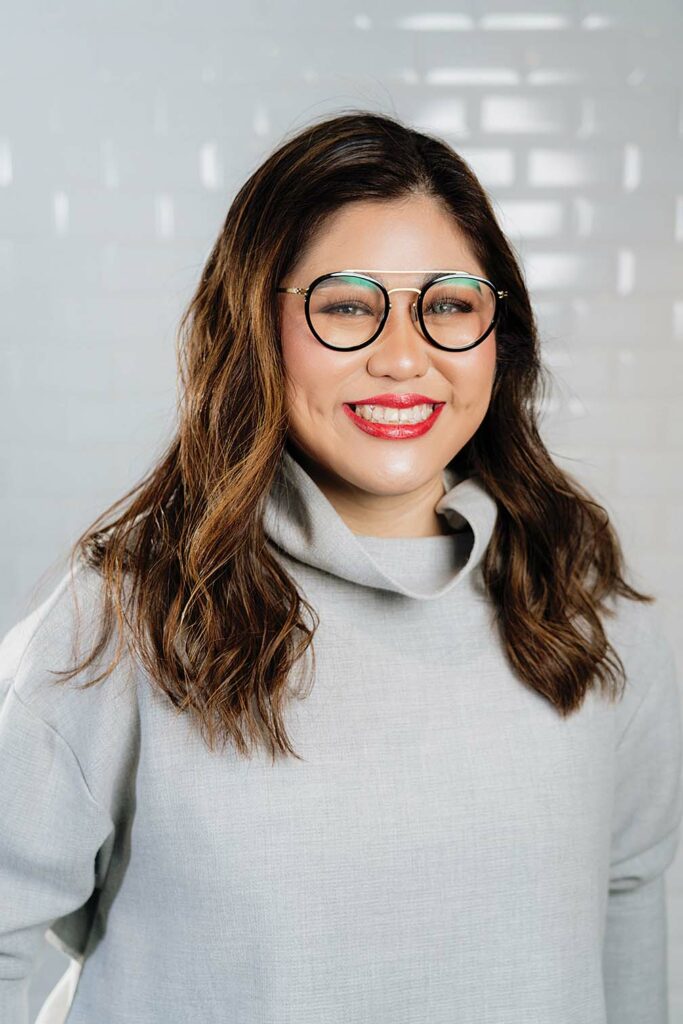
LIFE LESSONS & CHESS
Just like his wife, Manuel Lamentillo’s character stood out and made its way to the heart and mind of his eldest daughter.
“My father was a remarkably wise and patient man. I remember vividly the early days of learning chess with him when I was only six years old,” she said.
In their chess games, Manuel allowed his daughter to make mistakes and to learn from them. “During our matches, he taught me the importance of each move and its implications, patiently explaining strategies and consequences. By our third game, he introduced the concept of ‘touch move,’ emphasizing the need for decisiveness and thoughtful consideration before making a move.”
Manuel often reminded Anna Mae of the significance of actions and the impact these could have on a person. “He emphasized that one’s reputation is built on consistently delivering quality work. His words reminded me to approach tasks with dedication and integrity.”
REACHING HIGH, REACHING OUT
The Lamentillo household thrived in learning about the greats of history and literature.
Writings of prominent Chinese authors like Confucius, Gao Xingjian, and Mo Yan were readings made familiar to Anna Mae in her growing up years. Similarly, the works of Gabriel Garcia Marquez and Federico Garcia Lorca exposed her to diverse narratives and storytelling traditions, later branching out to Portuguese writer Jose Saramago and the Nobel Prize poet Pablo Neruda from Chile.
For music, there were the compositions of the classical masters wafting into their living room—Mozart, Tchaikovsky, Chopin, Debussy, and many more.
Imbibing the values shared by her parents and exposed to a plethora of cultural influences at a very young age, it was no surprise that Anna Mae would excel in the world of the academe.
Anna Mae graduated with honors from Manresa School in Parañaque, from the time she finished elementary, all the way to her graduation in high school.
She entered the University of the Philippines at Los Baños (UPLB) in Laguna, graduating cum laude with a degree in Development Communication. Her grades posted the highest general weighted average among all development journalism majors of her batch.
“During my time at UPLB, I had the privilege of experiencing the rich diversity that characterized the campus community. I encountered different perspectives and engaged in various student groups, including militant activists. As a former writer for the UPLB Perspective and a Councilor at the University Student Council, I had the opportunity to navigate the complexities of student activism and diverse ideologies on campus,” Anna Mae said.
She said that interacting with activists in college taught her the importance of dialogue, respect for differing viewpoints, and the value of engaging in constructive discourse.
“While our views may have differed at times, I approached these interactions with an open mind, seeking to understand the motivations and concerns of my fellow students. I strongly advocate for a participatory approach to governance and firmly believe in the transformative power of communication in driving positive change in our society,” she said.
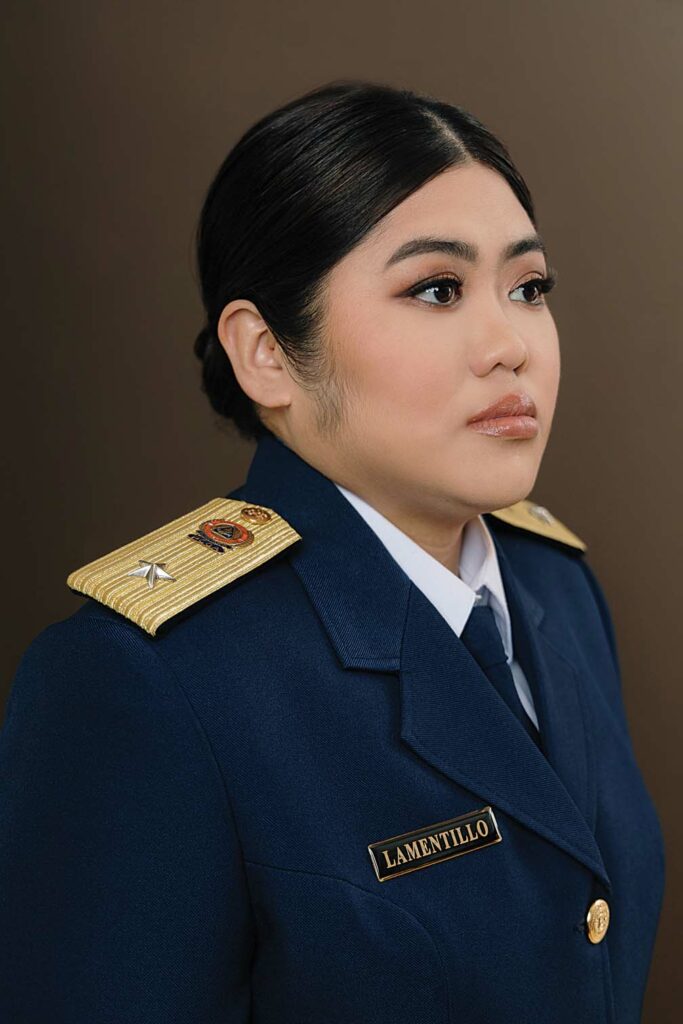
DIVERSITY, INCLUSIVIT
Anyone who studied in UPLB would share the view that majority of its students come from places far from Los Baños. In this verdant campus at the foot of Mt. Makiling, students from different backgrounds, ethnicities, and regions earn their degrees while sheltered in dormitories and residence halls, congregating in favorite hangouts like the Freedom Park, botanical gardens, the Elbi Square, and even the back of the main Library—for the more adventurous.
While still a college student, Anna Mae enjoyed meeting friends and acquaintances in numerous cafés that dotted the campus. She was active in college organizations, adding that these organizations provided a platform to advocate for important issues, collaborate with like-minded individuals, and foster a sense of community among students.
“I am grateful for the opportunities to immerse myself in a vibrant and diverse academic environment that has instilled in me a deep appreciation for the value of diversity in shaping informed, empathetic citizens and fostering inclusive democratic societies,” she said.
After graduating from UPLB, Anna Mae took up Law in UP-Diliman. For the next six years since she started her Law studies in 2014, she held four different jobs in four different organizations: United Nations Development Program (UNDP), Food and Agriculture Organization of the United Nations (FAO-UN), the Office of Congressman Mark Villar, and the Department of Public Works and Highways (DPWH).
Anna Mae admitted that she might have never finished law school, if not for her father.
Before leaving for Boston to complete an Executive Education in Economic Development at Harvard Kennedy School in 2018, her father told her: “I’m proud of you. But I hope Harvard is not an excuse not to finish law in UP. Babalik ka, di ba [You are returning, right]?”
It was at that point that she said, “Don’t worry Pa, tatapusin ko ang [I’ll finish] law school.”
Manuel Lamentillo never got to see his daughter finish her law degree. He died in 2019, the year before she graduated in 2020.
Three hours after her father’s funeral, she was in the plane headed back to the US to finish her stint at Harvard.
In 2023, she became a member of the New York City Bar Association and the International Bar Association.
For Anna Mae, it was a long, hard climb to finish Law. She admitted that there were many times she wanted to quit, take a break. “Often, U.P. Law has a way of making you feel inadequate, ill-prepared, and in need of improvement. Over time, I got used to the feeling and maybe, in admitting that I was inferior, I worked harder to survive.”
She remembered having dinner two years ago, with two of her mentors in the UP College of Law. Just as they finished their meal, she told them that she was planning on filing a leave of absence. “I couldn’t forget what they told me: ‘We won’t stop you but you should know that if you do take a leave of absence, you will never be a lawyer.’ I knew they were right. Every day was a struggle. But if there is one lesson UP law taught me—it was to show up for class, regardless of circumstances or how prepared I was.”
OF GOVERNANCE & GOVERNMENT
When President Rodrigo Duterte appointed Rep. Mark Villar as Secretary of the Department of Public Works and Highways (DPWH) in 2016, Ana Mae was already on board as the Congressman’s Legislative and Communications Chief. At that time, she was also studying to be a lawyer.
But her studies did not stop her from assuming more challenging tasks under the Duterte administration.
From December 2016 to October 2021, she served as chairperson of the Build, Build, Build Committee of the Department of Public Works and Highways (DPWH) and the concurrent chairperson of the Infrastructure Cluster Communications Committee.
Those were heady days for the young government executive. Build, Build, Build was the ambitious, multibillion-peso, flagship infrastructure project of the Duterte government.
“It has been a tremendous honor to have the opportunity to contribute to projects that aim to unlock the full potential of the Philippines and pave the way for its transformation into a trillion-dollar economy in the future,” she said.
In the course of five years, Anna Mae attended to the completion of some 29,264 kilometers of roads, 5,950 bridges, 11,340 flood control projects, 222 evacuation centers, 89 Tatag ng Imprastraktura para sa Kapayapaan at Seguridad (TIKAS) projects, 150,149 classrooms, and 653 COVID-19 facilities.
“Under the leadership of (then DPWH Secretary) Mark Villar, we prioritized long-term visions and strategic planning over short-term political considerations. Playing a role in the development and implementation of master plans that revitalized the country’s multimodal transportation network, integrating cycling lanes, pedestrian pathways, efficient rail systems, and modern subway networks, has been a highlight of my service. Witnessing the resurgence of a transportation system that embraces sustainability and inclusivity fills me with pride, knowing that it sets the stage for a more connected and prosperous future for all Filipinos,” she explained.
Perhaps, it can be said that Anna Mae’s book, “Night Owl: A Nationbuilder’s Manual,” is the synthesis of her best experiences in the Build, Build, Build infrastructure initiative of the Duterte administration.

Translated into four languages—Tagalog, Bisaya, Hiligaynon, and Ilokano, the book is a comprehensive narrative of the nation’s infrastructure policy from 2016 to 2022.
A year after the start of the administration of President Ferdinand “Bongbong” Marcos Jr., Anna Mae served as Undersecretary for Public Affairs and Foreign Relations of the Department of Information and Communications Technology (DICT).
BRIDGING THE GENDER GAP
“In my work with the DICT, under the leadership of Secretary Ivan Uy, I am proud to have introduced cutting-edge technologies like Starlink’s low-orbit satellites to the country. By bringing internet access to marginalized communities in remote areas, we are striving to uphold the belief that access to the internet is a fundamental human right, empowering individuals with information, connectivity, and opportunities that were once out of reach,” she said.
Anna Mae ranked first in the two consecutive surveys of government agency spokespersons conducted by the RP Mission and Development Foundation Inc. (RPMD) when she was DICT spokesperson.
“As of now, with the Philippines is being recognized as a leader in narrowing the gender gap in the 2023 Global Gender Gap Index Report by the World Economic Forum. It is evident that progress has been made towards gender equality in the country. However, there is still much room for improvement,” she said.

Anna Mae cites, for instance, the perpetuation of gender disparities and gender gap in the design and planning of public spaces and institutions, traditionally led by men. “Spaces such as playgrounds, basketball courts, and football fields are often designed with a male-centric perspective, potentially excluding or limiting the participation of women and girls. Addressing these biases and promoting gender-sensitive design principles can create more inclusive and equitable environments that cater to the needs and preferences of all individuals, regardless of gender.”
She added: “We can also leverage on digital technology by providing women with opportunities for education, entrepreneurship, and participation. However, it is critical that efforts must be made to bridge the digital divide and ensure that all individuals have equal opportunities to access and utilize digital tools. Initiatives focused on promoting digital literacy, expanding internet connectivity, and addressing gender biases in the tech industry are crucial steps towards creating a more inclusive digital society that benefits everyone, regardless of gender or economic status. Access to the internet is a human right that must be accorded regardless of gender.”
Anna Mae likewise advocates for an inclusive intermodal transportation network that caters to the needs of all Filipinos, especially those who are often overlooked or underserved like the Karay-a indigenous group.
“I dream of a society where access to transportation is not a luxury but a fundamental right, where individuals from all walks of life can move freely and independently. My advocacy for a more equitable transportation system is rooted in a vision of social justice and inclusivity, where every person, regardless of their background, can participate fully in society,” she said.
VIEWS ON THE FUTURE
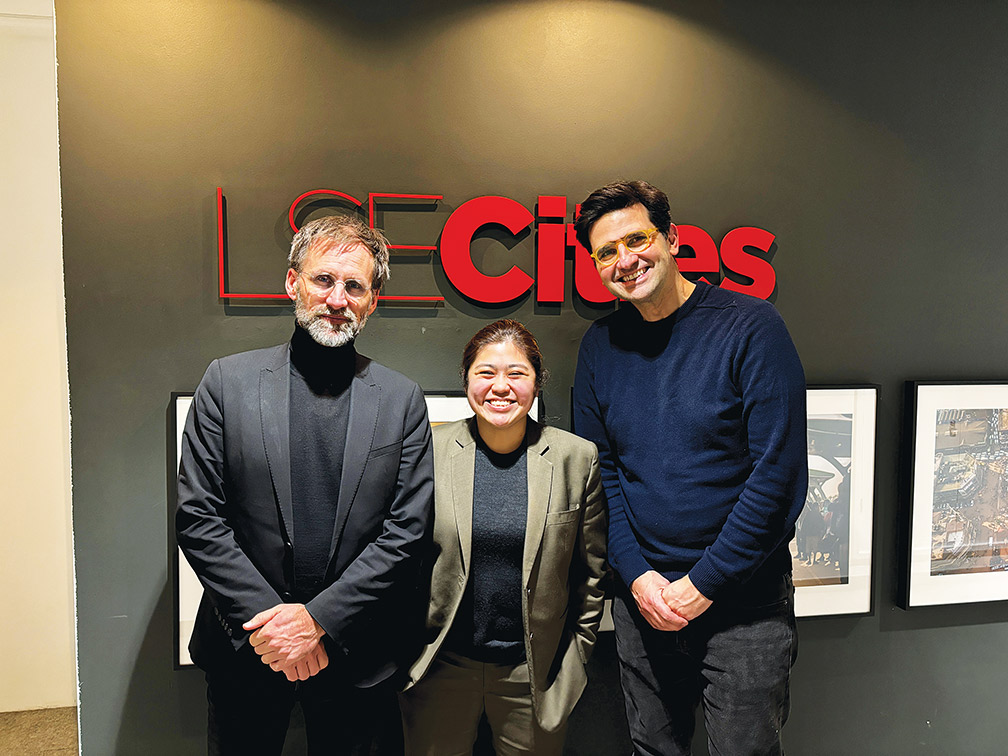
In November 2023, Anna Mae pivoted toward higher studies, choosing to pursue her Master of Science in Cities at the prestigious London School of Economics.
“In the next five years, my primary focus is on completing my Master’s program at the London School of Economics and then pursuing a Ph.D. in Law. Concurrently, I am dedicated to establishing a non-profit organization called the Build Initiative to advance my key advocacies of infrastructure development, inclusivity, and environmental protection. My overarching goal is to contribute to reimagining the Philippines as a trillion-dollar economy, creating a society where all individuals, especially the marginalized groups such as persons with disabilities, the elderly, women, and children, have equal access to opportunities,” she concluded.
Anna Mae expects to graduate in 2025.
